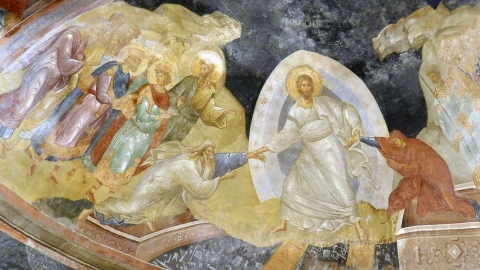Chile: Abortion is On the Agenda of the New Constitution

The Pereira Palace which houses the meetings of the Constituent Assembly
In Chile, the Constituent Assembly has just included legal abortion in the draft text of the new fundamental law of the country, which must be submitted to a referendum within a few months. The episcopate is denouncing it as a “fundamental attack” on the right to life.
“An event of the greatest gravity.” This is how the Conference of Bishops of Chile (CECH) reacted, on March 15, 2022, to the vote on Article 16 on sexual and reproductive rights, adopted by a majority of 108 votes for, 39 against, and 6 abstentions.
The article intends to include in the future Constitution, a right “to all women and persons capable of gestation the conditions of a voluntary and protected pregnancy, of an abortion, of childbirth, and of a voluntary and protected maternity,” without “violence, or interference from a third party, whether individuals or institutions”: a way of targeting the Church, which has made the fight against abortion its central issue in the country.
If, in the precincts of the former Congress, applause resounded at the announcement of the vote, greeted with cries of “abortion or not, it’s up to me to decide,” the sound of the bell is not the same on the side of the episcopate.
It denounces a project that “Chileans, believers or not, cannot accept, because respect for human life from conception is not something secondary, the taking into account of which is optional, but it is a fundamental value that we affirm supported by reason and faith,” recalls the CECH in its press release.
Grateful to those members of Congress who had the courage to oppose the Article 16 clause, the Chilean Prelates lament that “unfortunately, as we have repeatedly said, a mentality contrary to the life of a person already conceived was imposed on the country.”
There is still time “to become aware of this sad dynamic, which has as its unprecedented corollary the incorporation of free abortion as nothing less than a constitutional right,” warns the episcopate.
From 1989 to 2017, abortion was completely banned in Chile, but starting in 2017, on the initiative of then President Michelle Bachelet, abortion was authorized in cases of rape, danger to the mother, or the non-viability of the fetus, as was the case before 1989.
The vote on March 15 comes a few days after the inauguration of the new head of state Gabriel Boric, a man from the radical left who has never made a secret of his progressivism regarding major social issues.
If the draft of the new Constitution is approved as it stands next September following a popular vote, Chile will join the four other Latin American countries to have legalized abortion: Cuba (since 1965), Guyana ( 2006), Uruguay (2012), and Argentina (2020). Seven Mexican states have also legalized and regulated the practice, the latest being that of Sinaloa, on March 8.
(Sources : Fides/La Croix – FSSPX.Actualités)
Illustration : DelRoble Caleu, CC BY-SA 4.0, via Wikimedia Commons





